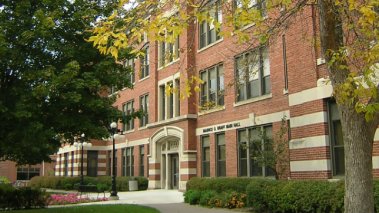Table of Contents
Speech Code of the Month: University of Wisconsin-La Crosse

FIRE announces its Speech Code of the Month for February 2016: the University of Wisconsin-La Crosse (UW-La Crosse).
Like many universities, UW-La Crosse maintains a protocol for students to report “bias incidents” to the administration. While bias incident policies have been around for years, they are becoming yet more common according to a recent article in The Chronicle of Higher Education. And while many of these policies stop short of actually allowing for punishment of protected speech, they nonetheless have a serious chilling effect on student and faculty expression.
Writing for National Review, former FIRE president David French elegantly explains this problem:
Universities are playing a dangerous constitutional game. They’re trying to deter speech they don’t like while avoiding creating policies or procedures that are plainly unconstitutional. As a result, [what] they often do is create a “process-is-punishment” mechanism that subjects offending students to intrusive and humiliating investigations all the while claiming to any watching free speech advocates (or federal judges) that they’re not actually prohibiting protected speech, they’re just “investigating complaints.”
And this deterrence, French writes, is quite effective:
I know from speaking to countless college students that bias-response teams have a profound chilling effect on free speech. In schools where teams are active, it’s the rare college student who has the intestinal fortitude to speak freely on matters of race, class, gender, or sexuality if their views are out-of-step with campus ideologues.
Which brings us to the bias reporting team at UW-La Crosse. By all accounts, it is an extremely active team; there have already been 118 reports made in the 2015–2016 academic year. This is perhaps, in part, because the university defines a reportable bias incident in extraordinarily broad terms: “Any non-criminal act motivated, in whole or in part, by the victim’s actual or perceived race, religion, ethnic background, sexual orientation, gender identity/expression, disability, or nationality.” The university encourages anyone “hurt by hate” to submit an official report to the university’s Hate Response Team.
And while the term “non-criminal act” could encompass both speech and conduct, it is clear that many reports are made on the basis of speech alone. Many of the incidents reported in 2015–2016 are described as “statements,” including numerous statements made in the classroom setting (something that has potentially tremendous implications for academic freedom if those statements were germane to the class discussion).
UW-La Crosse’s bias reporting system, like most such systems, does not itself establish a mechanism for punishment. But as the Hate Response Team’s 2013–2014 end-of-year report (the most recent one available) explains, “[s]tudents who have been identified as suspects or perpetrators may be investigated in a manner consistent with the impact of the incident.” This is precisely the type of “‘process-is-punishment’ mechanism” that can have such a powerful chilling effect on free speech.
As FIRE co-founder Alan Charles Kors wrote in one of FIRE’s earliest letters, concerning the investigation of a professor’s protected expression at the University of Alaska, protected speech is not a legitimate basis for an investigation:
The investigation, whatever its outcome, is categorically chilling of freedom. The intent to seek resolution, whatever its outcome, is categorically chilling of freedom. Individuals in a free society … are not investigated for their beliefs and protected expressions. Those beliefs and expressions are inviolable.
A university cannot be a place of free and open debate when it actively encourages students to report on each other’s perceived wrong-speak in classrooms and living spaces (in 2013–2014, 49 percent of reports came from UW-La Crosse’s residence halls, and another 12 percent from classrooms). That is Big Brother at his finest.
For these reasons, the University of Wisconsin-La Crosse is our February 2016 Speech Code of the Month.
If you believe that your college’s or university’s policy should be a Speech Code of the Month, please email speechcodes@thefire.org with a link to the policy and a brief description of why you think attention should be drawn to this code. If you are a current college student or faculty member interested in free speech, consider joining the FIRE Student Network, an organization of college faculty members and students dedicated to advancing individual liberties on their campuses.
Recent Articles
FIRE’s award-winning Newsdesk covers the free speech news you need to stay informed.

Texas tramples First Amendment rights with police crackdown of pro-Palestinian protests

Here’s what students need to know about protesting on campus right now

Kansas takes a stand for intellectual freedom
